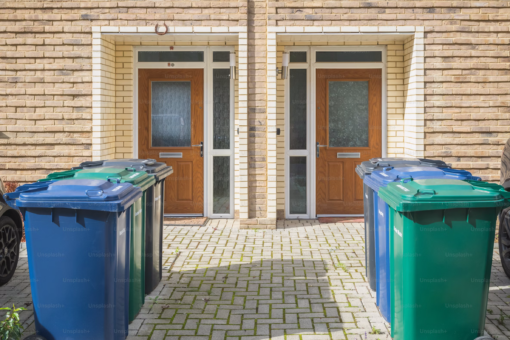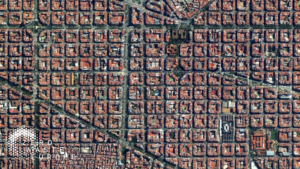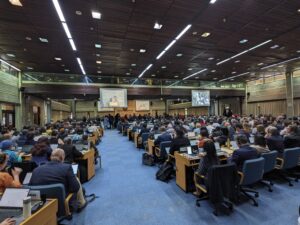
The role of Mixed Waste Sorting towards improved circularity of resources
“Nothing left behind”.
The title of the study authored by Equanimator and just published by ZWE nicely depicts the role that Mixed Wase Sorting (MWS) may play from now on. For at ZWE, we do give importance to all the highest levels of the hierarchy, including reduction, reuse, DRS, separate collection, recycling and composting – including the need to continuously redesign goods, packaging and services to become less wasteful and more circular. Something we do daily, we’ve always done, and we’ll keep doing.
Still, we have valuable resources that end up in residual waste (what we started naming as “Leftover mixed waste, or LMW, to emphasise it is not really “residual” – just a bunch of valueless stuff): and this refers not only to resources that by mistake are not separated properly (something we work on to minimise) but also to valuable materials that are not targeted by separate collection, as, first and foremost, non-packaging plastics. These are not covered by Extended Produced Responsibility (EPR), end up in LMW, and concentrate in it – with the effect that, the higher the separate collection rates, the higher their concentration in minimised amounts of LMW!
We know from real life operations, that technology allows recovering such resources, and prepare them to be fed back into the system, so as to supplement – and not to replace – higher quality materials (as those e.g. coming from DRS) and increase circularity. And this is not only operationally and economically viable, but also contributes towards minimisation of climate impacts of managing LMW: for it avoids fossil CO2 from burning plastics, and entails remarkable GHG savings from recycled materials, instead of virgin ones.
All the foregoing was well pitched during the event on MWS promoted by ZWE and RELOOP, that took place last 21 March in Brussels, with great contributions by NGOs, MEPs, EC Officers, stakeholders and site managers. Pitching the strategy, assessing its potential and benefits, and providing needed clarification on its role: 3 goals that were fully met.
As the Director-Founder of ZWE, Joan Marc Simon, nicely said in his final remarks, we took “learnings, conclusions, challenges, and a paradox” from the day. Below, a summary of learnings, conclusions and challenges. And the final paradox, to put some icing on the cake, and make it spicy.
Reasons to consider MWS
One of the key learnings was that, despite decades of supporting legislation, currently the EU recycles only 6Mt of plastics – a marginal amount of the total put on market. While the proposed Packaging & Packaging Waste Regulation aims at improving recycling and promoting reuse and reduction, MWS may bring in the system more efficiency, grabbing those materials (and not just plastics!) that currently make their way into landfills or incinerators. Also, from calculations that were shown during the event, it will be hard, if not impossible, to meet the recycling targets (already comparatively low) stipulated in the Packaging Waste Directive.
Also, with burning plastics that adds on the climate burden, given the fossil nature of the vast majority of plastics, and the Emission Trading Scheme to kick in next few years to make incineration pay for such an impact, this is something to tackle at the earliest possibility.
From evidence, though, as shown by some of presenters, biggest GHG savings would come from recycling, more than from avoiding incineration of plastics – this is something we’ve long been highlighting at ZWE: each and every kg, each and every tonne that gets recycled, implies huge savings in terms of GHGs.
Either/or? That’s not the question!
After our papers on MWS were out, some have mistakenly scrutinised MWS as “the wrong replacement for separate collection, which we cannot give up”. Nothing like that.
In circular economy there’s an overarching principle: we aim at keeping materials in the loop, in their highest status, for as long as possible.
Hence, we always stick to a cascading approach: reuse (and reduction) come first, for they are the least resource-intensive and keep materials as such. Then we must consider DRS, separate collection, and closed-loop recycling (bottle-to-bottle, can-to-can) as the way to maximise the quality of recyclates.
But as many speakers specified, there is scope, room, and reasons also for sorting out materials from LMW: even so more, for the obligation to separate organics is remarkably changing the nature of LMW, with dwindling percentages (in most Countries) of organics in LMW, which makes it less sticky/dirty, and more prone to sorting plastics, metals and even (in many situations, with lowest percentage of organics in LMW) paper.
Hence, it’s not either/or: we need both. MWS is not a strategy to side-step separate collection, but a way to supplement it, maximising circularity and minimising the climate footprint of waste management.
MWS works – economically and environmentally
Presentations by decision-makers and site managers who are already running sites that adopt MWS have shown it works – operationally and economically. Dominic Hogg dwelt on findings of the much anticipated (and now published) MRBT costing study, which – as those who have paid due care to our long-standing campaigning for it as a suitable alternative to incineration already know – includes also MWS (besides biological stabilisation of dirty organics in order to minimise their methane potential).
Calculations based on operational reality show MWS is affordable, both in terms of OpEx and needed CapEx. It’s remarkably more scalable than incineration, and would provide a great tool to minimise climate impacts of managing LMW (in that it avoids methane from landfills, and fossil CO2 from incineration). Hence, besides ensuring compliance with the EU obligation on pretreatment stipulated in Directive 99/31 on Landfills, it is worth considering also in other Regions of the world, so as to tackle the climate burden of waste management at the earliest possibility, with highest efficacy, and at lowest costs.
The paradox
In Joan Marc Simon’s own words, though, we have a paradox.
MWS won’t happen by itself, and fast enough, without legislation driving plans and investments, and promoting alignment across all various actors (decision makers, planners, investors, waste managers, etc.)
And we need to make this happen soonest.
As he said during his final remarks, “Just as with climate policy, the risk with recycling policy and with residual waste policy is that, by the time we know policy does not work, it’ll be too late to meet the targets”.
Something we cannot afford.
Check all the resources and materials from the ZWE-Reloop Mixed Waste Sorting event HERE.


